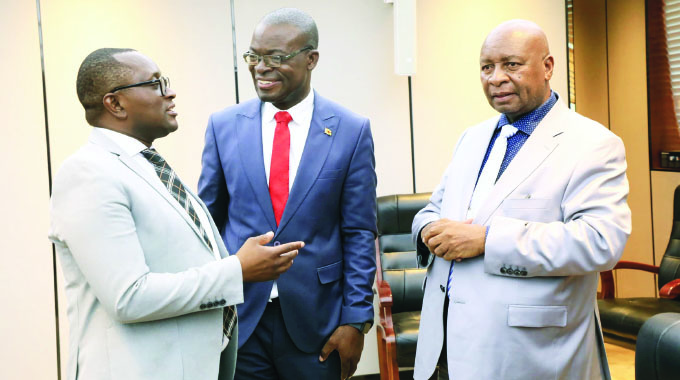
Cabinet has announced plans to improve the media landscape through the adoption of principles to amend the Zimbabwe Media Commission Act, the Media Practitioners Bill and the Broadcasting Amendment Act.
Notably, under the planned amendments, and in terms of the Broadcasting Amendment Act, the Zimbabwe Broadcasting Corporation revenue base will be broadened since it will be mandatory for all motorists to have a current radio licence before either disposing of their vehicles or on purchasing motor vehicle cover or policy.
This was announced by Information, Publicity and Broadcasting Services Minister Dr Jenfan Muswere during the post-Cabinet briefing yesterday.
He said the additional amendments to the Zimbabwe Media Commission Act, which had been a result of consultative meetings with various media industry players, would ensure that all identified gaps were covered.
“The amendments will standardise training in journalism and mass communication thereby entrenching professionalism. Furthermore, the definition of a media practitioner will be expanded, and a Media Council of Zimbabwe established for purposes of regulating the media.
“The additional Principles also cover the ownership of Mass Media Services in the country, tenure of office for Commissioners, and the reporting structure,” said Dr Muswere.
He added that foreign ownership of mass media services in the country would be limited to promote local content, local business, and employment.
The Act will also allow Zimbabwe Media Commissioners to serve for a one five-year-term, which is renewable once, and the Commission shall report to the Minister as provided for in the Constitution.
To address areas around the welfare of journalists and the media profession, Cabinet approved Principles of the Media Practitioners’ Bill.
The Bill is expected to professionalise and define media practitioners, and will allow the independence and co-regulation of media practitioners. It will also allow the growth and development of the media industry.
“The nation is advised that the Media Practitioners’ Bill seeks to create a legal framework that outlines parameters for the regulation of the media as provided for in section 249(3) of the Constitution of Zimbabwe.
“This entails the creation of a Zimbabwe Media Practitioners Council, which will be responsible for the regulation and enforcement of professionalism among all media practitioners. The Media Council will use delegated power from the Zimbabwe Media Commission to discipline its members,” said Minister Muswere.
He said the Media Practitioners Council would also deal with conduct and ethics and would be elected from institutions and organisations that include the Editors’ Forum, public and private media institutions as well as academic institutions.
The approval of the Principles for Additional Amendments to the Broadcasting Services Act [Chapter 12:06], is expected to address shortcomings that were identified in the first set of principles which were approved by Cabinet in 2019.
The additional amendments will, among other provisions, provide for ensuring gender balance in the Broadcasting Authority of Zimbabwe Board, the introduction of annual applications for broadcasting frequency spectrum licences, broadening and introducing new definitions under Section 38A and the prohibition of the sale of motor vehicle registration licence or motor vehicle insurance cover or policy to a person without a current radio licence or an exemption from ZBC under Section 38B.
“In terms of the amended Act, the Zimbabwe Broadcasting Corporation revenue base will be broadened since it will be mandatory for all motorists to have a current radio licence before either disposing of their vehicles or on purchasing motor vehicle cover or policy,” said Minister Muswere.
Zimbabwe Union of Journalists Secretary General Mr Perfect Hlongwani applauded the Government for engagement with the media industry players in coming up with a Bill that deals with the welfare of journalists.
“Indeed, there have been engagements and we continue to engage with the Government. We are happy that you are allowing us to engage on issues that affect us. We think that the best thing that we can do is to professionalise the sector,” he said.
Herald




